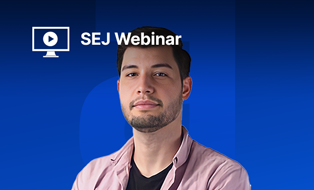Google announced the September 2023 Helpful Content Update that is expected to finish rolling out in two weeks. The update appears to loosens up on machine generated content while warning about 3rd party content hosted on websites or their subdomains.
Google also added additional guidance to their Helpful Content System documentation with new advice on what to do if a site lost traffic after a Helpful Content update.
Google Helpful Content System
Google has a system called the Helpful Content System for promoting quality content and reducing the search presence of content that is determined to not be helpful.
It is presented by Google as a system that works alongside all the other systems that together rank websites.
This system is primarily focused on identifying signals of quality that correspond to helpful content.
What is The September Helpful Content Update About?
Google updated their Helpful Content System documentation to add guidance in three areas:
- Loosening the guidance on machine generated content
- Hosting third-party content on subdomains (or on main domain)
- Offering additional guidance on what to do if your site loses traffic from a Helpful Content update
Google Loosens Guidance on Machine Generated Content
Google’s previous guidance on machine generated content emphasized that the Helpful Content system prioritizes content created by humans.
That part of the guidance is removed, signaling a change in Google’s attitude toward AI content to align it better with other seemingly contradictory guidance on AI content.
The original guidance:
“Google Search’s helpful content system generates a signal used by our automated ranking systems to better ensure people see original, helpful content written by people, for people, in search results.”
The updated guidance:
“Google Search’s helpful content system generates a signal used by our automated ranking systems to better ensure people see original, helpful content created for people in search results.”
Third-Party Content On Main Website Or Subdomains
There is a longstanding trend of hosting third-party content on the main part of a website or on a subdomain.
An example of this is news media websites hosting third-party credit card affiliate content on a subdomain.
The idea behind theses strategies may be that some of the main site’s ranking power would help the subdomain content rank better.
Google’s September 2023 Helpful Content update has made a change that may negatively affect websites that host third-party content anywhere on their website.
A new section added to the Helpful Content Update guidance advises:
“If you host third-party content on your main site or in your subdomains, understand that such content may be included in site-wide signals we generate, such as the helpfulness of content.
For this reason, if that content is largely independent of the main site’s purpose or produced without close supervision or the involvement of the primary site, we recommend that it should be blocked from being indexed by Google.”
Publishers should take this guidance seriously, particularly the part about the content being relevant to the main site’s purpose or if the content was not created with close supervision.
Helpful Content Self-Assessment Guidance Updated
Changes were made to Google’s Helpful Content Self Assessment guidance, Creating helpful, reliable, people-first content.
The following new guidance was added to the updated self-assessment guidance.
1. The first change is the inclusion of the word “reviewed” with the rest of the sentence remaining the same:
Is this content written or reviewed by an expert or enthusiast who demonstrably knows the topic well?
2. This new addition to the guidance is about faking an update to a page:
“Are you changing the date of pages to make them seem fresh when the content has not substantially changed?”
3. The last addition is also about faking freshness:
“Are you adding a lot of new content or removing a lot of older content primarily because you believe it will help your search rankings overall by somehow making your site seem “fresh?” (No, it won’t)”
Google’s Gary Illyes Discusses September 2023 Helpful Content Update
Gary Illyes posted background information about the emphasis on what he called micro-sites, explaining that many people reported these sites that they felt should not have been ranking.
Gary posted on LinkedIn:
“We’ve heard (and also noticed) that some sites “rent out” their subdomains or sometimes even subdirectories to third-parties, typically without any oversight over the content that’s hosted on those new, generally low quality micro-sites that have nothing to do with the parent site.
In fact the micro-sites are rarely ever linked from the parent sites, which don’t actually want to endorse these often questionable sites.
The only reason the owners of these shady (?) micro-sites rent the sub-spaces is to manipulate search results.”
Gary Illyes Answers Question About Sitewide Signals
Someone in the LinkedIn thread asked a question about the guidance that third-party content on the main site or a subdomain may be included as part of the sitewide signals that Google uses, like the signals related to the Helpful Content System.
The asked:
“Am I correct in concluding that site-wide signals are generated on the host level = apply to all subdomains? Or does this only apply to some signals like the helpfulness of content?”
Gary Illyes answered:
“some signals are url level, others pattern, others host, others domain. so… yeah…”
Helpful Content System Documentation Updated
Another change
New Guidance On Recovering From Helpful Content Update
Lastly, Google added new guidance on how to recover should a site be affected by any Helpful Content Update.
The new paragraph added to the documentation recommends identifying unhelpful content and removing or replacing it.
Google’s new guidance:
“If you’ve noticed a change in traffic you suspect may be related to this system (such as after a publicly-posted ranking update to the system), then you should self-assess your content and fix or remove any that seems unhelpful.
Our help page on how to create helpful, reliable people-first content has questions that you can use to self-assess your content to be successful with the helpful content system.”
Read Google’s documentation on the Helpful Content System:
Google Search’s helpful content system and your website
Featured image by Shutterstock/Cookie Studio





![[SEO, PPC & Attribution] Unlocking The Power Of Offline Marketing In A Digital World](https://www.searchenginejournal.com/wp-content/uploads/2025/03/sidebar1x-534.png)